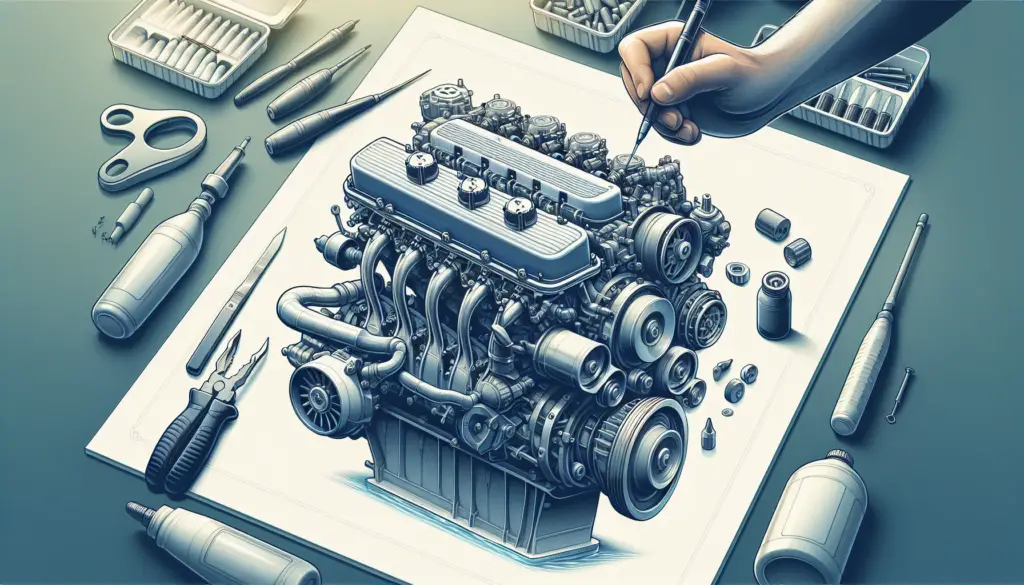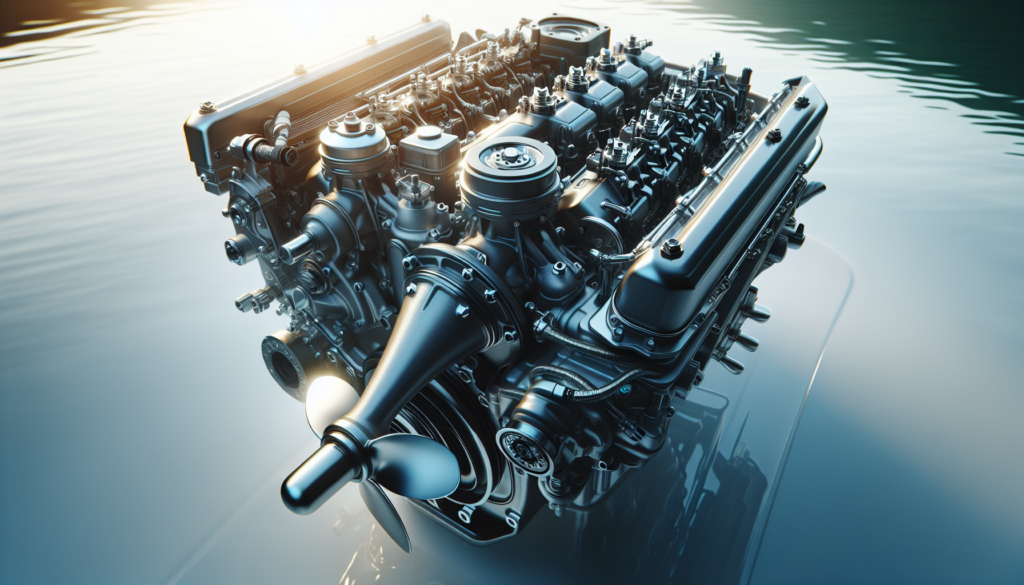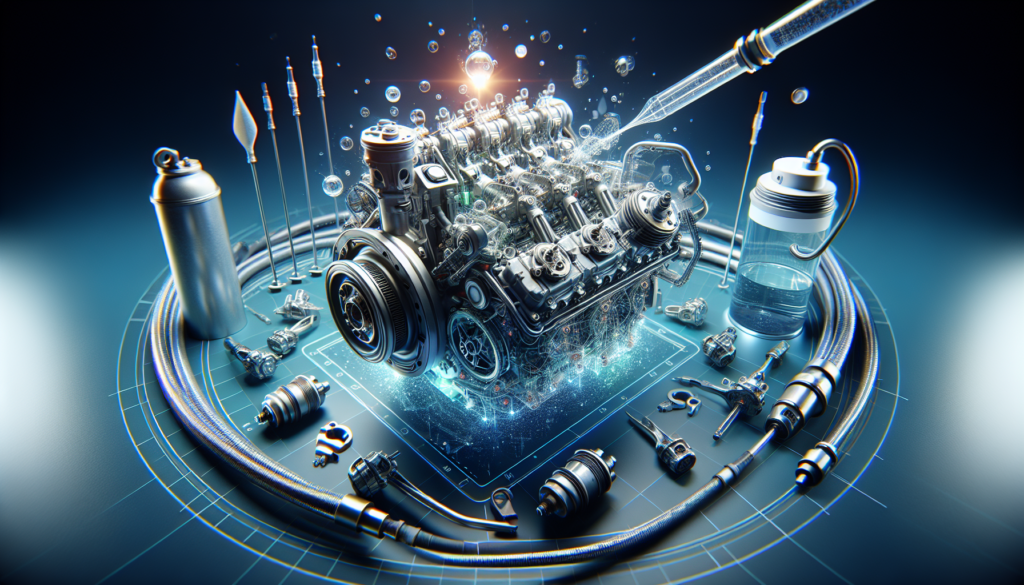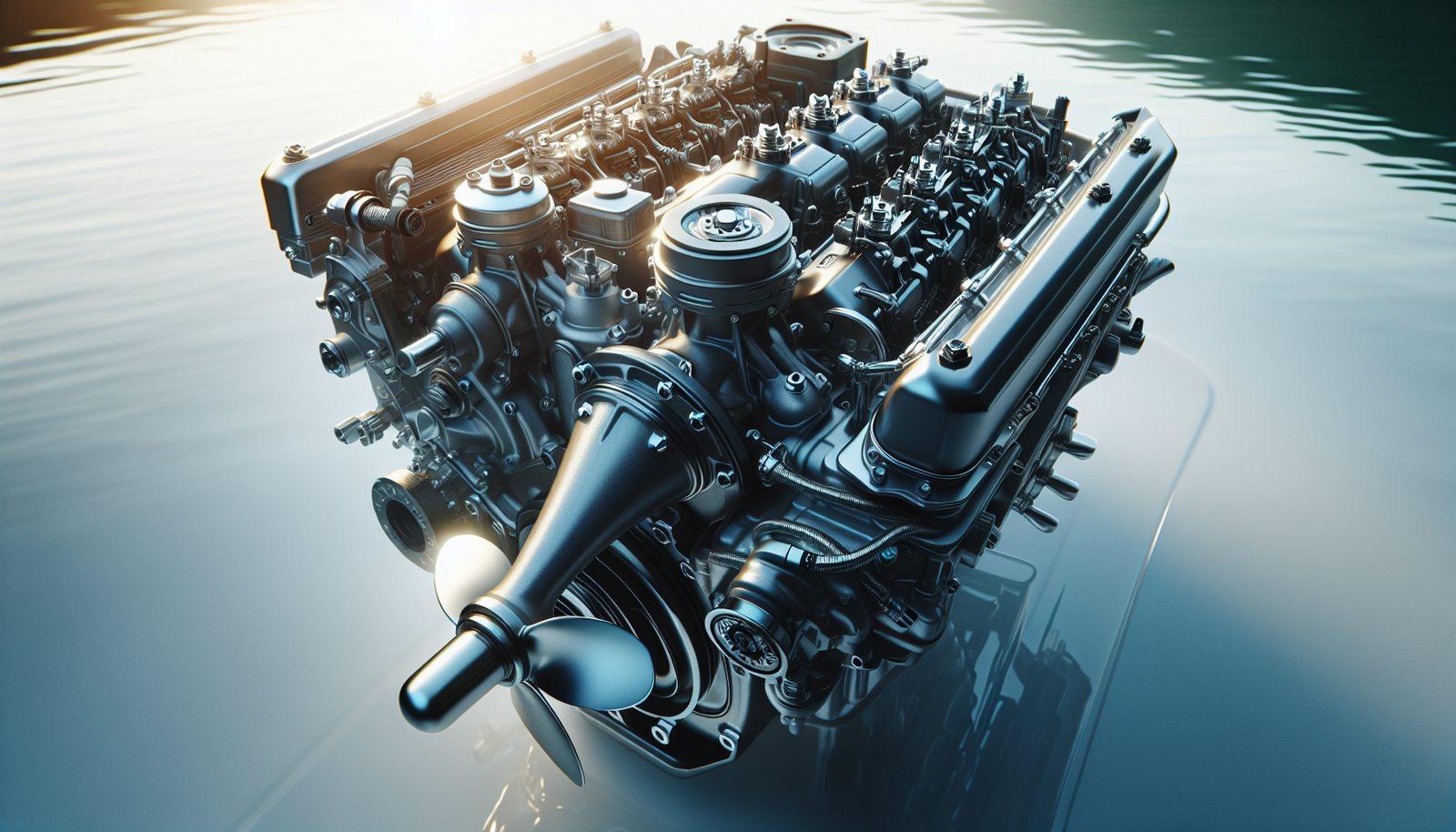You’re here because you value your boat, a precious symbol of freedom and adventure. As a boat owner, you understand the importance of maintaining your vessel’s engine to ensure it keeps running smoothly. This article is a beacon of hope, casting out the top 10 boat engine maintenance tips that can be your guide to a better boating experience. From minor checks to major repairs, these insights will not only extend the life of your engine but also enhance your overall sailing sessions. So, hold onto your captain’s hat and get ready to navigate through these pearls of wisdom about boat engine maintenance!

Understanding Boat Engine Types
Boat engines can be the heart of your sailing experience. Knowing the types of engines that power your water adventure can help ensure optimal efficiency, longevity, and overall boat performance.
Types of Boat Engines
There are several types of boat engines, and each has its unique features. You commonly encounter Outboard engines mounted outside the rear of the boat. They are easy to maintain and replace. Inboard engines, on the other hand, are built into the body of the boat, enabling better boat balance. There are also Sterndrives or Inboard/Outboard (I/O) engines, which are a hybrid between the Inboard and Outboard engines. Lastly, Jet engines that use a jet of water for propulsion.
Differences in Maintenance Requirements
Each boat engine type requires specific maintenance needs to keep them running efficiently. Outboard engines need regular flushing after use, especially in saltwater, to prevent corrosion and buildup. Inboard engines need consistent engine oil changes due to their high horsepower demands. Sterndrives have more moving parts which translates to more lines of maintenance. Jet engines require thorough inspection and clearing of the water intake mechanism regularly. Understanding these differences can significantly impact the operation and life span of your boat engine.
Regular Engine Inspections
Regularly inspecting your boat engine is essential for smooth sailing. It helps identify potential issues before they become severe problems.
Daily Inspections
Every day before you set sail, you should check your boat’s engine. Look for signs of leaks, cracks, or any abnormal signs. Check if the cooling system is working correctly and ensure that the battery is adequately charged.
Seasonal and Annual Inspections
Seasonal and annual inspections go deeper into the engine components. They may involve inspecting belts and hoses, replacing engine oil, checking thermostat conditions, and replacing fuel filters. It’s a good time to remedy any maintenance issues overlooked during daily inspections.
Signs of Potential Issues
You must always be on the lookout for signs of potential issues with the boat engine. Such signs could include excessive smoke from the exhaust, unusual knocking or pinging sounds, decrease in power, or even abnormally high fuel consumption.

Engine Oil Maintenance
Proper engine oil maintenance is crucial for the healthy operation of your boat’s engine.
Correct Oil Levels
To check the oil level, remove the dipstick, wipe it clean, then reinsert it fully. Upon removal, you should see the engine oil near the ‘full’ mark. Too high or too low oil levels can cause engine problems.
Checking for Oil Leaks
Signs of oil leaks can be evident in the bilge or in the water directly beneath the boat engine or exhaust. If you spot an oil leak, it’s essential to have it checked and repaired as soon as possible.
Changing the Engine Oil
Changing the engine oil should be done every 50-100 hours of boat operation or at least annually. It ensures maximum engine performance and longevity.
Best oil for Boat Engines
The best oil for your boat engine depends on the type and model of the engine. It’s crucial to consult your boat engine’s manual or a professional for the best recommendations.
Thermostat Maintenance
Maintaining a good working thermostat is key to preventing overheating problems in boat engines.
Checking the Thermostat
To check the thermostat, you should watch out for signs of overheating or poor performance. If the boat engine is running hotter than usual, or there is reduced water flow from the exhaust, the thermostat might be faulty.
Replacing a Faulty Thermostat
If you find the thermostat to be defective during your check, you should replace it. Thermostats are generally cheap and quite easy to replace.
Optimal Thermostat Performance
Proper maintenance and regular checks can help achieve optimal thermostat performance. This means fewer issues and a longer lifespan for your boat engine.

Fuel System Maintenance
The fuel system is a crucial aspect of your boat engine. It needs regular attention to ensure your sailing experience remains unhampered.
Preventing Fuel Contamination
Condensation or poor-quality fuel can contaminate the fuel system. Always use high-quality fuel and keep the fuel tank full to minimize condensation.
Fuel Filter Replacement
Fuel filters help prevent contaminants from reaching the engine. They should be periodically checked and replaced as needed.
Checking for Fuel Leaks
Regularly inspect the fuel lines for cracks or leaks. Even a minor leak could lead to major problems down the line.
Belt and Hose Checks
Belts and hoses are vital components of your boat engine. Regular checks can help prevent breakages and subsequent engine problems.
Identify Worn Belts and Hoses
Visible wear, fragility, or cracks in the belts and hoses are signs that they need replacing.
Replace Faulty Components
Any faulty belts or hoses should be replaced immediately to prevent any further damage to the boat’s engine.
Maintaining Spare Parts
It’s always a good idea to keep spare belts and hoses. They may come in handy in an emergency.

Maintaining the Cooling System
A well-maintained cooling system can prevent your boat engine from overheating, providing longer engine life.
Regular Flushing of the Cooling System
Regularly flushing the cooling system, especially after a saltwater journey, can help prevent build-up and corrosion.
Inspecting for Leaks or Clogs
Regularly inspect the cooling system for any leaks or clogs. Any inefficiency in the cooling system could lead to overheating and damaging the engine.
Replacing Coolant
The coolant level should be checked periodically, and the coolant should be replaced as recommended by the manufacturer to ensure optimal engine performance.
Battery Maintenance for Boat Engines
A well-maintained boat battery ensures uninterrupted boat use and longevity of the electrical components.
Regular Battery Checks
Ensure the battery connections are good and the battery charge is sufficient before setting out.
Proper Battery Storage
When the boat is not in use, remove the battery and store it in a cool, dry place to prolong its life.
Replacing the Battery
Batteries typically have a life span of three to six years. If the battery starts losing charge too frequently, it may need to be replaced.
Propeller Maintenance
Maintaining the propeller ensures maximum efficiency and speed while you’re out on the water.
Visual Inspection for Damage
Regularly inspect the propeller for any dents, chips, or cracks. Such damages can reduce its efficiency and potentially damage the engine by causing imbalance.
Balancing and Alignment Checks
Ensure your propeller is well balanced and aligned to prevent vibrations that could damage the engine over time.
Being Wary of Mechanical Strains
Over-revving the engine or pushing through heavy debris could strain the propeller and the engine itself. Avoid such practices for the health of your boat engine.
Preservation During Storage
Proper storage can extend the life of your boat engine.
General Storage Tips
When storing your boat, ensure it is thoroughly clean and dry to deter corrosion and degradation caused by moisture or dirt.
Preventing Corrosion During Storage
Applying a protective coating on the engine and using a high-quality fuel stabilizer can help prevent corrosion during storage.
Storage for Different Engine Types
Different engine types need different attention during storage. Outboards should be stored upright to let water drain. Inboards may need fogging oil for prevention of interior corrosion. Jet engines need thorough flushing as well. Always consult your engine’s manual or a professional for detailed guidance.

